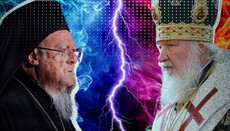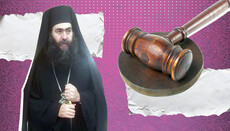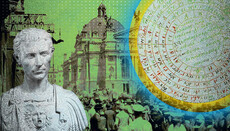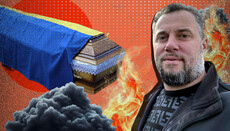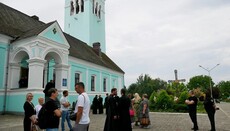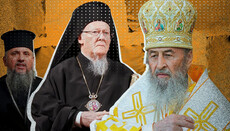Church and state: Lessons from history for the present day
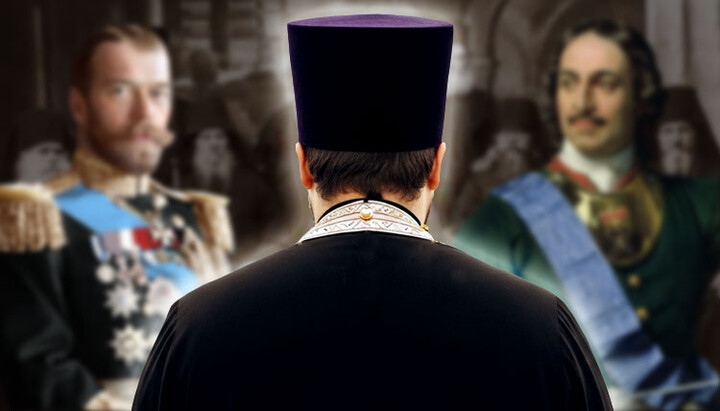
From Peter's reforms to the Revolution of 1917: how state dependence affected the Russian Church – and what lessons the UOC should draw from this today.
Many today wonder: how could it happen that the devout Orthodox people, the "God-bearing nation" as Dostoevsky called them, suddenly rose up against their Church after the 1917 revolution? How could those who once went to their deaths “for faith, Tsar, and Fatherland” destroy the faith, kill the Tsar, and tear down that very Fatherland?
Indeed, what happened after 1917 defies human logic. Tens of thousands of churches were closed or wiped off the face of the earth, thousands of monasteries and sketes were destroyed, hundreds of thousands of believers were executed, thousands of priests and hundreds of bishops were murdered, and millions were buried alive behind the barbed wire of the Gulag.
How could this happen? And, more importantly – why?
To answer this question – which remains deeply relevant today – we must turn to history.
When the Church ceases to be the Body of Christ
As early as the era of Peter I, the religious life of the Russian Church was subjected to harsh and merciless criticism. On one hand, the Church was attacked for excessive attention to outward ritual forms; on the other, it had fallen under overwhelming state control. Ivan Aksakov, a Slavophile and patriot well-versed in Church affairs, once wrote:
"Thus, in terms of administration, the Church now appears as a kind of colossal bureaucracy, applying – with the inevitable, alas, official bureaucratic falsehood – the methods of German bureaucracy to the salvation of Christ's flock... Apparently, all the Church has been granted is outward order – a semblance of proper organization...
But one trifling thing is missing: the soul is gone. The ideal has been replaced – the Church’s ideal has been supplanted by a state ideal, inner truth replaced by formal, external correctness. A new measure has been substituted for the old – a governmental measure instead of a spiritual and moral one. Everything is now weighed and measured on the state’s official scale...
The worldview of the state has, like a subtle vapor, imperceptibly seeped into the mind and soul of nearly the entire ecclesiastical environment, with few exceptions, narrowing its understanding to the point where the living sense of the Church’s true mission has become barely accessible. Nowhere is truth so feared as in our Church administration; nowhere is there such flattery as among our hierarchy; nowhere is the spirit of Pharisaism so strong as among those who ought to hate falsehood the most."
Church and power: harm or benefit?
Indeed, it’s hard to deny that the Church of that era had surrendered itself to imperial will. For example, Peter I’s decree of April 22, 1722, required every cleric (including bishops) upon entering holy office to swear an oath “to be a faithful, good, and obedient servant and subject to the emperor and his lawful heirs,” to defend the emperor’s rights and dignity, “not sparing even their own life if necessary,” and to report any damage or threat to imperial interests – including “theft, treason, or rebellion revealed in confession,” as well as “any evil designs against the Tsar’s honor, health, or family.”
In other words, the secular authorities demanded that Orthodox clergy violate a foundational canonical rule: the inviolability of the sacramental confession. In effect, the Church became a mere “Department of Spiritual Affairs,” heavily influenced by the Chief Procurator of the Holy Synod – a layman appointed by the Tsar.
As a result:
The Church in Russia was perceived as an extension of the state. And if the people’s hatred was directed at the state, the Church was inevitably caught in that hatred too – a sentiment that had been simmering long before 1917.
Prince Ivan Gagarin, who converted to Catholicism, wrote: “The Russian Church needs independence; it senses this itself.”
Understanding that the Church in Russia was inextricably tied to autocracy, Gagarin believed that an attack on the Tsar would inevitably strike the Church as well. Moreover, he saw the deepening schism with the Old Believers as another wellspring of discontent with autocratic rule. In his eyes, Catholicism could save Russia – because it had the spiritual freedom the Russian Church lacked. He famously wrote:
“Let us repeat: it is one or the other – Catholicism or revolution. The Russian Church is powerless; the Tsarist regime may only delay the explosion. The union of the schismatics with revolutionary movements becomes more and more inevitable. There is no time to lose. I see no other way to avert this threat than a national Russian-Catholic clergy.”
Thus, Gagarin understood that the Russian Church – having bound itself so tightly to the state – lacked the strength to confront the revolutionary currents rising among the Old Believers and even within the lower clergy.
Church and Revolution
Here is just a short list of well-known revolutionaries who came from clergy families:
- Nikolai Chernyshevsky (1828–1889), a major theorist of Russian revolution, son of a priest in the Saratov Eparchy; educated in a religious school and seminary.
- Sergei Nechaev (1847–1882), organizer of the underground group “People’s Retribution” and a symbol of fanatical revolution; son of a deacon from Nizhny Novgorod province.
- Nikolai Kibalchich (1853–1881), member of “Narodnaya Volya” and chief designer of the bomb that killed Alexander II; son of a priest in the Chernihiv Eparchy.
- Mikhail Novomirsky (Tikhomirov) (1850–1884), activist of “Narodnaya Volya”; son of a priest.
- Alexander Mikhailov (1855–1884), one of the leaders of “Narodnaya Volya” and its Executive Committee; son of a rural priest.
- Vladimir Ulyanov (Lenin) – came from a clerical estate.
Besides, let us not forget the failed seminarian Stalin.
And this is just the tip of the iceberg.
There are hundreds, if not thousands, of names of priest’s children who became revolutionaries. And many of them did not merely sympathize with revolutionary causes – they actively took part in terror and assassinations.
Why?
Because they saw the hypocrisy and servility that had become entrenched in the lives of their fathers.
Because they understood: the Church, subordinated to the state, had ceased to be a spiritual mother and had become a cog in the bureaucratic machine. And if that machine needed to be destroyed – so did its parts.
A fatal union
Thus, the revolution in Russia was not just a popular uprising. It was, in many ways, the outcome of an unhappy marriage between Church and state. A Church bound hand and foot by the government was unable to serve as the voice of conscience. In the end, it remained silent – or even offered its blessing – as the old order was dismantled.
For example, on March 5, 1917, just two days after Tsar Nicholas II’s abdication, the Holy Synod declared:
“The Holy Church of Christ greets the recent events as a mercy of God upon our people... May the Lord bless the Provisional Government and grant it strength to perform the work of serving the people.”
As a result, those forces that destroyed the Tsar turned their wrath on the Church as well. And the reason is clear: when the Church becomes part of the state, people see it as a target – not as the Body of Christ.
What about today?
Yes, the current situation of the Ukrainian Orthodox Church seems unbearably difficult to many of us. We are forbidden to pray as our ancestors did for centuries. Our churches are being taken away. The authorities are doing everything in their power to erase the UOC from Ukraine’s religious landscape. But—
Perhaps this is, in fact, a blessing from God. A blessing that the Church should be free from all state dependence, so that it may possess the inner liberty necessary to fulfill its true mission – the preaching of the Gospel.
It may seem that without the “roof” of state protection or official patronage, the Church is weak and exposed. But maybe this is precisely the path Christianity calls us to walk – not to please power, but to serve the people.
And perhaps, painful as it is, a Church free from state dependence is walking a blessed path.
